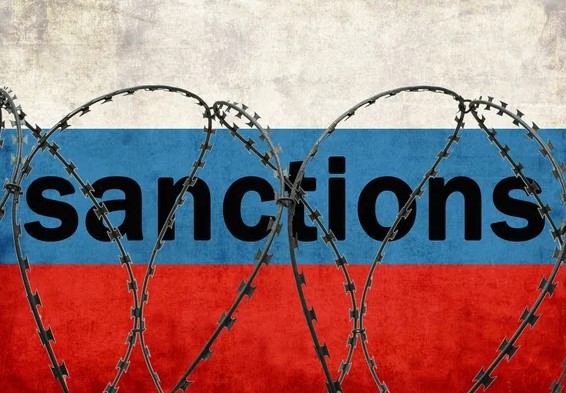Expensive and unconvincing. What's wrong with the deposit and pledge system for handling containers

Photo is illustrative in nature. From open sources.
In Belarus, the discussion of the draft presidential decree "On the deposit (pledge) system of circulation of consumer packaging" continues. First Deputy Director General of the Unitary Enterprise "Coca-Cola Bevrigiz Belarus," Andrei Roshchupkin said in a comment to TUT.BY that the adoption of the decree in its current version is impossible without an assessment of the regulatory impact and economic impact on the economic development of the country.
"In our opinion, the planned system of measures will lead to a serious rise in prices of products packaged in consumer packaging made of glass, plastic and metal," said Roshchupkin.
He draws attention to the fact that the developers of the deposit system indicated in various drafts of the decree different indicators: for example, calculations per one plastic bottle: 20 kopecks - the amount of the deposit, 7 kopecks, 4 kopecks, 3 kopecks - the payment of the Management Organization of the deposit system for the operation of the system. "And IT is at an average cost of a bottle of a drink in a plastic package on the shelf of a retail facility 1 ruble! This means that the initial calculations were wrong by more than 2 times", - emphasizes the interlocutor.
At the same time, manufacturers and importers will continue to pay the fee to the operator of secondary material resources under the decree № 313. Without a transparent economic analysis, including the consequences of the introduction of the deposit system on the overall price growth, the economic situation of producers, consumer behavior and other aspects, it is impossible to analyze the submitted documents, especially talk about the effectiveness of the deposit system, the expert believes.
According to the market participant, the world experience confirms that such a system of collection is the most expensive of all existing ones. Belarus does not have its own taromatas with cash or supporting documents with a certain degree of protection. So, such machines will be purchased abroad. The approximate cost of one device is €15-30 thousand, while mass purchases will adversely affect the foreign economic balance of the country, while imports will increase.
There are also questions about the obligation of trade companies to organize tare collection points in stores. The problem is not only in the lack of free space, but also in the fact that plastic packaging is a flammable material that requires special fire safety rules and a firefighting system.
Roshchupkin points out that it is not clear from the project how the management organization will use the raw materials obtained as a result of waste collection, while the proceeds from its implementation are planned to be used to reduce the cost of the system. In order to increase the efficiency of the system, it is possible to envisage the possibility of changing, among other things, the technical regulations that restrict the use of recycled materials for the production of food packaging (for example, the bottle-to-bottle technology, which is prohibited today).
Market participants also note that a significant number of goods in packaging are excluded from the scope of the draft decree, such as dairy products. [ADD-X]
He also considers some elements of financial and economic substantiation of the system to be unconvincing. For example, it is pointed out that the growth of state revenues is due to the income tax, which should be formed due to the creation of 1500 additional jobs, although it is obvious that the creation of new jobs is not the main task of the system. "The most important indicator should be the efficiency of the system - the ratio of the percentage of return of packaging to the cost of participation.
Roshchupkin points out that a 1% increase in the cost of soft drinks and drinking water reduces sales by 1%, which will reduce tax revenues from both producers and suppliers, as well as from trade. "Also, there are no budget losses in terms of reducing the profit tax from producers (suppliers) by increasing the cost of goods," he adds.
Market participants are also concerned about the fact that payments by participants of the deposit and pledge system should be made from their own funds. "And such an approach is supposed to be justified, while the average marginality of production of drinking water and soft drinks in the industry ranges from -2 to +3%? - asks a rhetorical question Roschupkin.
Market participants also point to the lack of calculations of the amount of initial investment in fixed assets and working capital of the participants of the deposit and mortgage system, including foreign investors, necessary for the operation of the system throughout the country.
It is obvious that the developers of the draft documents relied on the experience of a number of countries, which are specified in the justification, in particular, Lithuania and Estonia.
"However, studying the experience of the disposable consumer packaging system in operation since 2016 in Lithuania allows us to draw conclusions about the main differences in the approaches to the system implementation compared to the situation in Belarus.
Roshchupkin points out the strict observance of the principle of market regulation of relations between the system participants: "All of them (the association of trade organizations, brewing companies and the association of producers of soft drinks) are co-founders of the System Operator, and the state only controls the work, provides the necessary indicators without acting as a founder and without interfering in the operational activities. And in the substantiation of the new version of the draft decree, the organizational and legal form of the future management organization is not specified, and these projects do not contain any other principles of its functioning".
Neighbors and transparency of the system's work in all its organizational and financial nuances for the general public, and a uniform understanding of all stakeholders at the time of the system launch, who will be its investor, how to build relations between the system participants, how and who will be in demand product of the system - recycled secondary packaging.
In Lithuania, the cost of the system at the implementation stage amounted to 35 million euros. These funds were partly raised through bank loans, partly through partners who provided equipment (automatic container collection taroma) in the amount of 25 million euros under long-term leasing terms.
"According to our information, in the first year of operation, the Lithuanian Depository System Operating Organization incurred significant losses of several million euros, and following the results of the audit by an independent audit organization, the adequacy of the financial model of the financial system organization was questioned," the interlocutor noted.
In Belarus, the primary information needed to make a decision on the system is only fragmented, which does not allow to calculate concepts and projects in the field of waste collection and processing, to assess their economic efficiency.
The timing of the preparation of the decree and its entry into force are also alarming. For example, provisions on ensuring the identification of packaging should enter into force eighteen months after its official publication. "In practice, manufacturers will only be able to prepare for the new accounting and packaging requirements once the infrastructure is in place, as it is necessary to ensure that the purchased taromatas and packaging equipment comply. So the term of entry into force of the decree should be extended.
Coca-Cola in Belarus declares that it is ready to take an active part in the analysis of draft regulations in the future, as well as to attract international experts and assist in carrying out the necessary economic calculations, if necessary. The company is ready to consider the issue of membership in the founders of the managing organization of the deposit and pledge system.
Read together with it:
- Lamb kebab is rising in priceLamb is called one of the healthiest types of Meat. But in Russia they consume little of it: according to statistics, out of the 80 kilograms of meat eaten annually by every resident of the country, only 1.5 kilograms of lamb account for IT. And this despite all our love for barbecue. The main reaso...
- 245 российских лекарственных препаратов зарегистрировано в стране с 2022 годаВ 2021 году было зарегистрировано 36 новых продуктов, а за 2023 год – уже 104. Сегодня 97 отечественных компаний осуществляют производство лекарственных средств для ветеринарного применения. Зарегистрировано 2318 препаратов, из которых 1442 (62,2%), в том числе 353 вакцины, являются отечественными. ...
- Focus - agriculture. Preventive raids are taking place at agricultural enterprises in the Mogilev regionThe issues of developing the agricultural industry and increasing its efficiency, ensuring a good harvest and, as a result, economic stability have always been a priority. Moreover, working for results is a mutual effort of many departments and services, and not the responsibility exclusively of emp...
- Европа криминализует обход санкций. Какие могут быть последствияЕвросоюз утвердил закон, вводящий уголовную ответственность за нарушения санкционных режимов. Она может распространяться не только на резидентов стран ЕС, но и на подсанкционных российских лиц, считают эксперты Совет Евросоюза в конце прошлой недели окончательно одобрил общеевропейский закон, предус...
- Profit growth of the largest egg producers in the Leningrad region: successful development and increased demandIn 2023, in the Leningrad region, the profits of the largest producers of edible eggs increased significantly, reaching more than 40% growth. The Sinyavinskaya, Roskar poultry farms and the Oredezh agricultural complex earned a total of 4.4 billion rubles, which is 43.6% more than in the previous ye...
- Тюменские птицефабрики нарастили доходы и прибыльТюменские птицефабрики продолжают демонстрировать рост выручки и прибыли, что является положительной новостью для региона. Одной из таких компаний является Боровская птицефабрика, которая в 2023 году сумела увеличить выручку до 5,7 млрд рублей, что на 158% больше, чем в предыдущем году. Чистая прибы...
- Russian livestock farmers need a reliable source of veterinary drugsRecently IT has become known that Russian livestock farmers' stocks of imported veterinary drugs will only last for two to three months. This information was confirmed by the executive Director of AVFARM, Semyon Zhavoronkov, during the industry business conference “Agroinvestor: PRO livestock and an...
- Минсельхоз предлагает запретить свободный выгул кур«В мелких и крупных хозяйствах, а также на предприятиях применяется напольная (с выгулами или без выгулов) или клеточная системы содержания птицы. Содержание птиц с использованием свободных выгулов не допускается. Выгул птиц, содержащихся на предприятиях, не допускается», – говорится в проекте ветер...
- Politico узнало об «оптимизме» ЕС насчет решения по российским активамЕвросоюз ближайшее время намерен принять решение об использовании доходов от замороженных российских активов для закупки вооружений для Украины, дипломаты рассматривают этот сценарий с «оптимизмом», передает Politico со ссылкой на европейских чиновников. По данным издания, постоянные представители с...
- Запасов импортных ветпрепаратов у животноводов хватит на два-три месяца — АВФАРМ«По оценкам экспертов российской животноводческой отрасли, зарубежные ветпрепараты у кого-то закончатся через два-три месяца, у кого-то – до конца года», – подчеркнул спикер. Между тем, без «хорошей фармы» инвестиции в животноводство практически невозможны. Несмотря на то, что в себестоимости животн...





























































